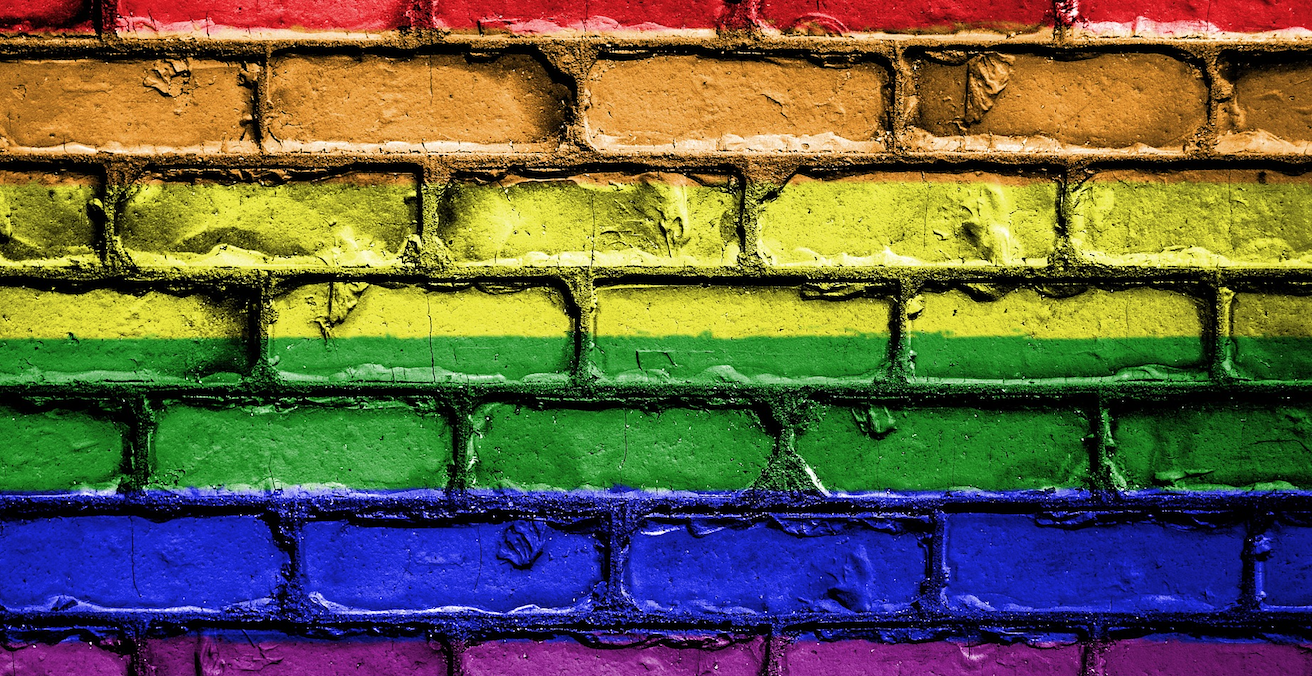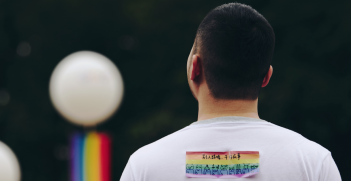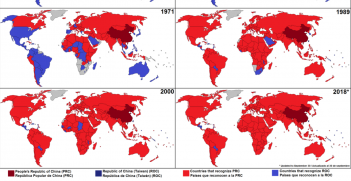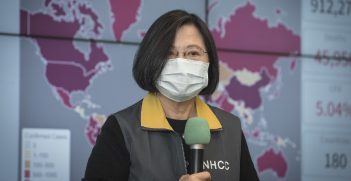LGBTIQ Rights Around the World: Marriage Equality and the Death Penalty Hide Wider Concerns

Marriage equality and the death penalty for gays frequently receive the attention of the international media. Yet these two issues fail to capture the wider concerns of LGBTIQ people.
In the space of just a few decades, talking about homosexuality has gone from being taboo to almost trendy, and in much of the western world LGBTIQ people have gone from living in the closet to getting married. Although in the not too distant past there was a broad global consensus that being gay or transgender was a crime, or a disorder, or both, in 2019 opinions about LGBTIQ people are much more polarised.
Media coverage of LGBTIQ people tends to focus on either marriage equality or the criminalisation of homosexuality. This is evident in the recent coverage of the decision to allow same-sex couples to marry in Taiwan and Ecuador and Brunei’s implementation of Sharia Law, which includes death by stoning for anyone found guilty of engaging in gay sex. However, these two issues — marriage equality and the death penalty for gays — represent the black and white of LGBTIQ rights and fail to capture the grey area in-between, where the majority of the world’s LGBTIQ population find themselves.
This article seeks to bring a more nuanced analysis to the debate and provide a more accurate picture of the day-to-day lived experience of LGBTIQ people around the world.
It is very easy to cite statistics about LGBTIQ people: 72 countries criminalise homosexual conduct, 13 of them have the death penalty, 29 countries have marriage equality, two-thirds of these countries are in Western Europe. It is much harder to go behind these statistics and identify the real and present issues that are impacting the ability of LGBTIQ people to lead lives of dignity and equality. Seven such issues are considered here.
1. Absence of Anti-discrimination Laws
In many countries, the LGBTIQ community’s priority for reform is anti-discrimination legislation that prohibits discrimination on the basis of sexual orientation and gender identity and expression (SOGIE) in the provision of goods and services. Without such laws, employers, landlords, providers of education and healthcare services, amongst others, can discriminate against members of the LGBTIQ communities with impunity.
The absence of anti-discrimination laws that include SOGIE is by no means limited to the Global South. In the US, federal laws do not prohibit discrimination against LGBTIQ Americans, while Australia’s anti-discrimination laws are inadequate because exemptions embedded in the legislation for religious organisations mean that religious schools can fire a gay teacher because of their sexual orientation or refuse to enrol a student who has two dads.
2. Conversion Therapy
It is distressing that in 2019, thousands of LGBTIQ people are still being subjected to conversion therapy. This disreputable, pseudoscientific practice involves using psychological and sometimes physical interventions, such as electric shocks, to try to change a person’s SOGIE.
Many jurisdictions have banned health professionals from engaging in these discredited practices, but it is harder to stop faith-based organisations from their efforts to convert homosexuals to heterosexuals and transgender people to cisgender.
There is strong evidence that survivors of conversion therapy are profoundly psychologically damaged by being subjected to such extreme pressure to change their SOGIE, and can suffer long term negative mental health consequences.
A concerted global effort is needed to end this harmful practice.
3. Homophobic Hate Crimes
According to a report released this week, anti-LGBTIQ hate crimes are criminal offences that are motivated by hate or prejudice towards the victim based on the victim’s perceived SOGIE.
Anti-LGBTIQ hate crimes are a very real and present danger for the LGBTIQ community globally, and they are on the rise. In England and Wales, homophobic and transphobic hate crimes have more than doubled over five years, with the most recent police data recording 11,600 crimes. That is more than a staggering 30 attacks a day!
In Brazil, the government’s failure to legislate for homophobic and transphobic hate crimes, prompted Brazil’s Supreme Court to rule that violence against LGBTIQ people be punished under the country’s racism law until Congress approves specific legislation to protect LGBTIQ people.
Despite this alarming data, there is still an absence of widespread and comprehensive laws dealing with anti-LGBTIQ hate crimes. Such laws are urgently needed in order to send a strong message to society that hate crimes against vulnerable minorities will not be tolerated.
4. Persecution of Transgender People
Although trans-visibility is increasing, with celebrities such as Caitlyn Jenner and Laverne Cox now mainstream media stars, so too are the rates of violence against transgender people. The rate at which trans people were being killed prompted the development of the “Trans Murder Monitoring” project in 2009. Since then annual reports have been published documenting the verified numbers of hate-based killings of transgender people. The most recent report recorded 369 murders; an increase of 44 compared to the previous year. The majority of these murders occurred in Brazil (167), Mexico (71), the US (28) and Colombia (21).
These hate-based homicides reflect global stigma and oppression of the most marginalised in our society, and demonstrate an urgent need for public education, policy change and community efforts to address the complex causes of anti-trans violence and ensure that victims receive respect and support.
5. Invisibility of Bisexuals
Although the ‘B’ in LGBTIQ is a familiar and accepted part of the LGBTIQ acronym, bisexuality is often an invisible, excluded or silent sexual orientation. A woman who has a male partner is assumed to be heterosexual whilst a female couple are assumed to be lesbians. The possibility that women in such relationships might be bisexual is rarely contemplated, leading to a sense of invisibility, which has an impact on a bisexual person’s sense of belonging and acceptance. A term has been coined for this phenomenon — Bisexual Erasure — the pervasive denial of the existence or legitimacy of bisexuality.
Being silenced in this way leads to marginalisation which can result in poorer physical and mental health outcomes. Addressing bi invisibility means giving voice to bisexual people, moving away from the binary that there are only two sexual orientations — heterosexual and homosexual — and ending the isolation of, and discrimination against, bisexual people within both the LGBTIQ community and wider society.
6. Non-essential Surgery on Intersex Infants
The “I” in the LGBTIQ acronym is probably the least well understood part of this minority population, no doubt in part because intersex status is neither a sexual orientation or a gender identity. Rather, Intersex people are born with physical sex characteristics that don’t fit medical and social norms for female or male bodies.
A priority issue for the intersex community is to stop surgery being performed on intersex babies and children to “normalise” their genitalia. Malta became a world leader on protecting the rights of intersex children when in 2015 it became the first country to enact laws that recognised that all persons have the right to bodily integrity and physical autonomy and made it unlawful for medical practitioners to conduct any sex assignment treatment and/or surgical intervention on the sex characteristics of a minor when treatment and/or intervention can be deferred until the person to be treated can provide informed consent.
As the voices of intersex people are increasingly heard, and awareness of the harm of carrying medically unnecessary, non-consensual genital modifications on children grow, many more countries will hopefully follow Malta’s lead and criminalise these grave breaches of human rights which have been likened to female genital mutilation, a practice that is now almost universally condemned.
7. Treatment of LGBTIQ Asylum Seekers and Refugees
The treatment of LGBTIQ people is so bad in some parts of the world that they are forced to flee and seek refuge in another country. Unfortunately, for LGBTIQ the experience of seeking asylum is often demeaning and dehumanising.
Although international human rights law recognises that persons who fear persecution on the basis of their SOGIE are entitled to apply for asylum in another country, that message appears to not always have filtered through to relevant decision makers. There are a litany of accounts of LGB people going to extreme measures to convince the government officials who are assessing their claims that they are lesbian, gay or bisexual, including by producing videos of them having sex with a same-sex partner.
Increased training is needed for government officials who are assessing claims for asylum so that they understand that asking an asylum seeker about their sexual practices is a breach of that person’s rights to privacy, dignity and equality.
Conclusion
June is designated Pride Month around the world, and this year is particularly significant as it marks the 50 year anniversary of the Stonewall Riots in New York; the catalyst for the gay liberation movement. However, in many, if not most parts of the world, LGBTIQ people are facing increasing violence, discrimination and persecution. So whilst we can and should celebrate the progress that has been made, there is still much work to be done before LGBTIQ people feel respected, safe and included.
Professor Paula Gerber is a researcher in Law at Monash University and deputy director of the Castan Centre for Human Rights Law. She specialises in international human rights law, particularly as it relates to LGBTIQ people.
This article is published under a Creative Commons Licence and may be republished with attribution.





